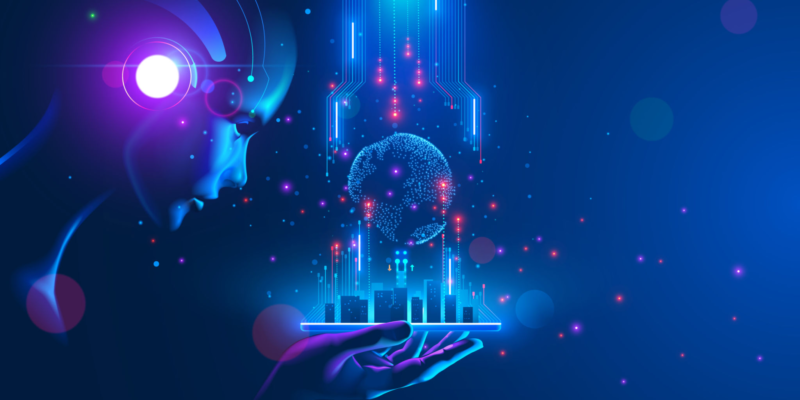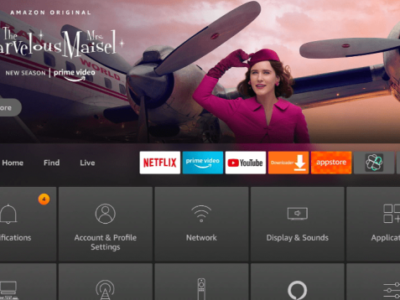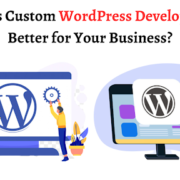Role of AI in IoT – What It Is and Why It Matters?
The role of AI in IOT is the perfect partner to increase business productivity
Millions of devices conversing, exchanging data, and transforming important insights into critical courses of action is very intriguing in today’s tech-savvy world. AI & it has completely changed the corporate sector.
Thank you for reading this post, don't forget to subscribe!They have, in fact, made firms less reliant on humans and more reliant on robots. Finally, the outcome is favorable! It is now easier for businesses to collect massive amounts of data, evaluate it, and make bold decisions in order to take a huge step forward in their business using smart technology.
However, there are endless benefits to using AI & it in your business, but how to use these technologies? No worries! In this blog, you will get to know about the brilliant ways to use AI & IoT. So make sure you read and understand this blog thoroughly. Let’s begin.
Introduction to AI & it
“The Internet of Things is the brain that allows AI to operate. “IoT also gives AI the data it requires to make intelligent decisions,” according to the report. “In exchange, IoT and end devices like robots, drones, and industrial machines can act on some of these findings and insights.”
The Internet of Things (IoT) and Artificial Intelligence (AI) have transformed the operations of different industries and businesses. The Internet of Things, together with artificial intelligence (AI), is being utilized to create intelligent devices that mimic smart acts and assist in decision-making with minimal human participation.
These two powerful technologies, when combined, enable businesses to achieve meaningful digital transformation. Therefore, this is what AI & IoT are. Now, let’s see what is the exact role of AI in IoT.
The Exact Role of AI in IoT
- Sensors are incorporated in devices that permit data streaming via internet access in the Internet of Things.
- The actions taken by IoT devices are based on penultimate analysis, which is where AI comes in handy.
- The Internet of Things provides data, whereas AI has the potential to break the chain of replies by providing resourcefulness and perspective to initiate intelligent actions.
- Using AI-assisted sensor data analysis, many enterprises may make more productive judgments.
- The AI-enabled Internet of Things also ensures the safety of sensitive data.
Now, as if you are clear about the concept of AI & IoT, let’s move on to see some of the brilliant ways to use this technology so that you can develop an on-demand app.
What is the Role of AI in IOT
AI & IoT in Industry
The transformation of manufacturing to digitization is so dramatic that it has been dubbed Industry. The phrase refers to the use of computers and automation to process data and create smart autonomous systems that are powered by machine learning and data.
It’s also known as smart manufacturing or the Industrial Internet of Things (IIOT). The goal is to make manufacturing and supply chain management organizations more holistic and integrated ecosystems.
Role of AI in Healthcare
Currently, billions of IoT devices are producing sensor data connected to health. The following are the benefits of combining IoT and AI:
- Tracking
- Analyzing
- Monitoring
- Optimizing
Given the importance of task automation in healthcare, AI algorithms in IoT devices can help improve operations efficiency significantly.
Take, for example, patient monitoring. According to studies, 30 percent of patients are readmitted to the hospital following surgery due to a lack of surveillance. With AI-powered IoT devices, remote patient monitoring is now possible. IoT sensors can track a patient’s state throughout the day, allowing clinicians to be informed about their condition at all times.
A blood clot is another example. Blood clot information is critical for the management of a variety of disorders, including diabetes, stroke, and others. IoT in healthcare sensors can follow the patient’s status and check blood coagulation, minimizing the risk factor.
Role of AI in Manufacturing
AI in manufacturing is expected to reach USD 16,7 billion by 2026, according to market research. Big data, IoT and automation, computing power, and venture capital investments are driving the rise of AI in manufacturing.
Factory quality checks are an example. Today, cameras with AI high-resolution capabilities can detect faults with significantly greater accuracy than the human eye. These devices are linked to a cloud-based data processing platform that automatically detects defects and coordinates responses.
Customer service is another example. Nokia is at the forefront of this industry, developing tools that enable them to identify significant customers and troubleshoot issues.
Role of AI in Transportation
In the field of transportation, huge changes are on the way. Many initiatives have already been tested, and widespread acceptance is on the way.
Self-driving automobiles from Tesla, BMW, and Mercedes are one example. According to research from April 2021, there are currently 1400 automobiles on the road in the United States. This amount was projected to be much larger a few years ago, but Covid-19 disrupted the manufacturing process, as most manufacturers were shut down.
Self-driving, trucks are an additional example. These cars aren’t entirely self-driving, but they do resemble today’s planes’ autopilots.
AI and IoT have a positive impact on warehouse management as well. Robot workers, for example, pick faster and detect inventory more efficiently in Amazon’s e-commerce facilities.
Role of AI in Homes
Consumers have a strong desire to buy products that are automated in some way. They can, for example, switch off the water tank if it is overfilled or slow down once they reach a specific level.
These robots follow a set of instructions that have been given to them. The robot’s dataset is populated with the request. E.g. If you tell the robot to make tea when it’s programmed to make coffee, it won’t understand what you’re saying.
However, Alexa, Siri, and Google Assistant are examples of smart connectivity gadgets that we already have in our homes. Voice control is possible with these modern home security systems.
Many duties, including shutting off lights when the door is locked from the outside, operating the robotic vacuum in the owner’s absence, and turning on the air purifier before the owner arrives home, are automated.
Samsung’s Smart Things family of products, along with Bixby voice control, can detect people in the house and alter settings based on their preferences. With the Samsung TV and family hub refrigerator, family members can operate any smart gadget.
Wrapping Up
The new industrial revolution is no longer the way of the future. IT companies are going to show us the way in many fields such as digital marketing, robotics, AI, healthcare, and more.
Companies like Virtual Oplossing are already leading the way in this pursuit. AI-enabled IoT devices can be found on the roadways, in factories, and in people’s homes. The brain and the body are analogous to AI & IoT.
Now, you can easily create a video streaming website in 2022 with AI & IoT.
How much of an influence will they have on the lives of regular people? Will this, for example, compromise privacy? This ethical concern remains unanswered, as these gadgets gather much data, including information about your social media habits.
One thing is undeniable. Whether we like it or not, we are entering a new era in which computers and robots will play a far larger role than ever before. Of course, it’s a gradual process that involves a mix of human and autonomous decisions. When it comes to knowing when something makes sense and when it doesn’t, we must be extremely cautious.












